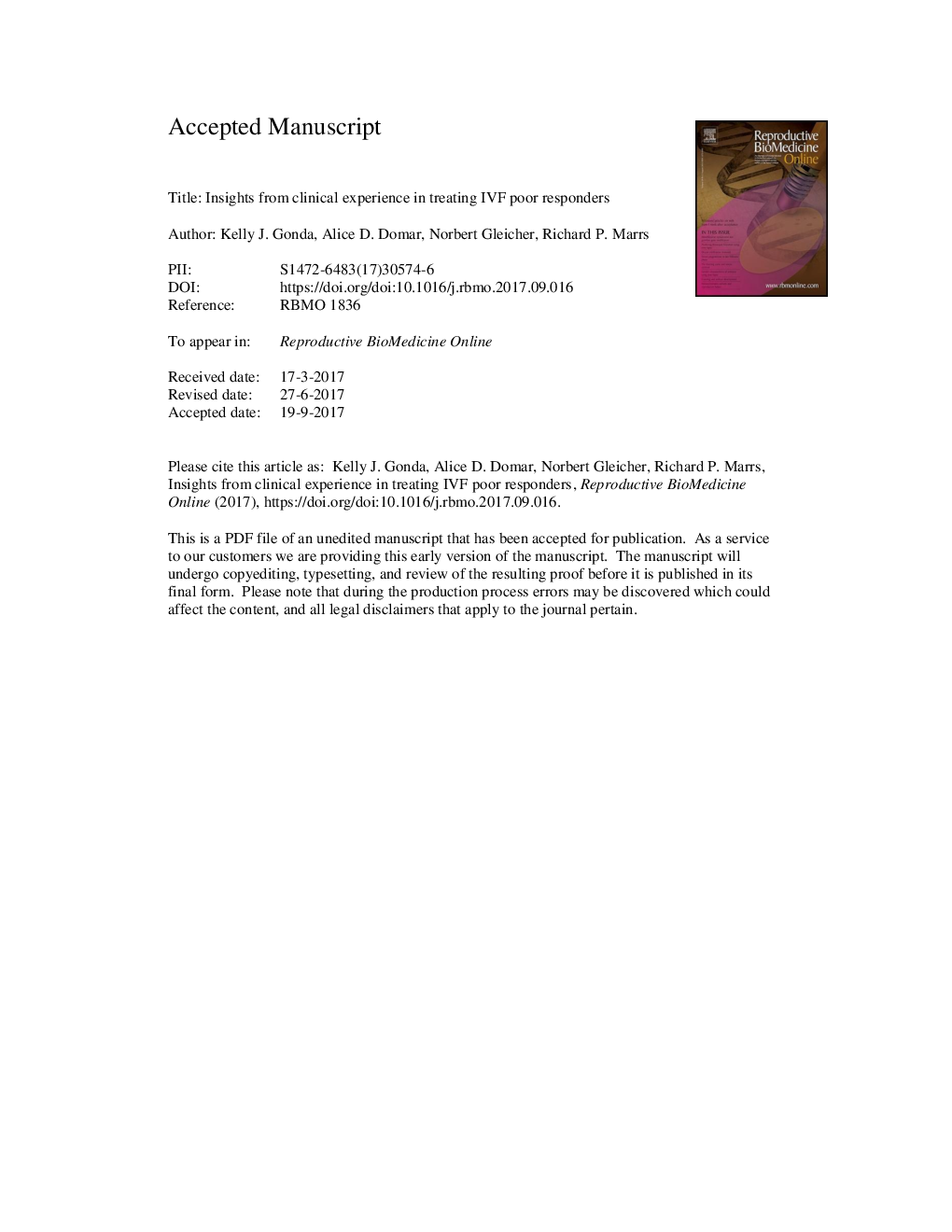| Article ID | Journal | Published Year | Pages | File Type |
|---|---|---|---|---|
| 8783949 | Reproductive BioMedicine Online | 2018 | 19 Pages |
Abstract
'Poor responders' is a term used to describe a subpopulation of IVF patients who do not respond well to ovarian stimulation with gonadotrophins. While there is no standard definition of a poor responder, these patients tend to be of advanced maternal age (â¥40 years), have a history of poor ovarian response with conventional stimulation protocols, and/or have low ovarian reserve. Despite the heterogeneity of this patient group, there are characteristics and needs common to many poor responders that can be addressed through a holistic approach. Stimulation during the earlier stages of follicle maturation may help synchronize follicle development for improved response to later gonadotrophin stimulation, and supplementation with dehydroepiandrosterone or human growth hormone may promote early follicle development in poor responders. IVF protocols should be specifically tailored to poor responders to complement the patient's natural cycle. Because poor responders tend to have high levels of stress and anxiety, patients should receive psychological counselling and support, both prior to and during IVF cycles, to ensure optimal outcomes and improve patients' experience. It is important to set realistic expectations with poor responders and their partners to help patients make informed decisions and better manage their distress and anxiety.
Related Topics
Health Sciences
Medicine and Dentistry
Obstetrics, Gynecology and Women's Health
Authors
Kelly J. Gonda, Alice D. Domar, Norbert Gleicher, Richard P. Marrs,
